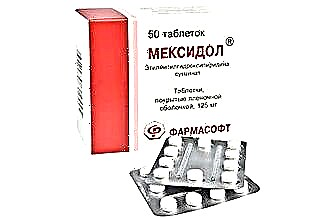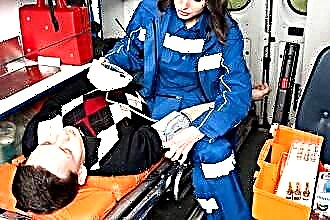According to statistics, there are more and more people with cardiac problems every day, while the age of potential patients is decreasing. Unfortunately, we begin to take care of the body only when we are faced with a problem, although the prevention of disease is much more promising than any treatment. According to the WHO, about 35% of cases of this pathology can be avoided through prevention. Systematic strengthening of the heart muscle will help keep you healthy for years to come.
How to strengthen the cardiovascular system with food?
The table for diseases of the cardiovascular system, and especially a heart attack, heart failure, should be as correct and useful as possible. This is achieved by consuming proteins, fats, carbohydrates, vitamins and microelements necessary for the myocardium and blood vessels.
Below are foods that improve heart function, lower cholesterol levels, cleanse blood vessels and prevent the occurrence of cardiovascular diseases. Such are modern advice from cardiologists with regard to the prevention of cardiac problems.
Based on the recommendation of the WHO (World Health Organization), half of the daily intake of protein foods should come from plant proteins. Their content is high in legumes (peas, beans), grain products, soy milk, cocoa. In between main meals, a snack with seeds (sesame) and various types of nuts (hazelnuts) is useful. Meat dishes (preferably low-fat varieties: chicken, rabbit, veal) are eaten boiled or baked. Dairy products (cheese, cottage cheese, unsweetened yogurt) and eggs are taken only low-fat.
For fats to benefit the heart, there should be 2.5 times more unsaturated than saturated fats in the diet. Mackerel, herring, trout, sardines and various vegetable oils (olive, sunflower, cottonseed, soybean) are sources of polyunsaturated fatty acids. They lower cholesterol, triglycerides, thin the blood and lower blood pressure.
Limit the use of rapidly digestible carbohydrates (baked goods, sugar, honey), giving preference to various cereals, cereal products. And by eating fresh vegetables and dried fruits (banana, apple, kiwi, peach, dried apricots), fruits of plants (berries), you will restore the balance of vitamins, minerals and trace elements that are indispensable for the work of the heart.
Exercises to strengthen the heart and blood vessels
Physiotherapy is a complex of methods, the effect of which is realized under the influence of an electric or magnetic field, laser radiation, ultrasound and with the help of physiotherapy exercises.
The work of a physiotherapist is aimed at:
- elimination of stress, neurotic state;
- lowering blood pressure (reduces stress on the heart);
- improvement of the rheological properties of blood (prevention of thrombus formation);
- normalization of body weight;
- activation of metabolism (prevention of the development of atherosclerosis in the coronary vessels).
Most of these effects are achieved through exercise. At the present stage of development of medicine, gymnastics to strengthen the heart is used for any pathology. There are no absolute contraindications, except for the acute period. Recommended for both pregnant women and persons in the recovery stage. In order not to harm, they combine not only benefit and ease of implementation, but also safety. Physical activity after a sore throat is not advised, because such behavior provokes complications.
Dynamic aerobic loads are recognized as the best exercises for the myocardium. Walking, running, swimming, cycling, skiing, skating, dancing train the heart muscle. Patients with angina pectoris are advised to swim carefully, especially in cool water, as this causes a spasm of the heart vessels. At the same time, they remember that they start with moderate loads, gradually developing endurance. Exercise should never be accompanied by discomfort or pain. When shortness of breath, arrhythmia, bradycardia appear, classes are stopped and an appointment with a cardiologist is made. Before and after exercise, the heart rate is monitored. This indicator is normally no more than 120-130 beats per minute (tachycardia occurs) and returns to its original value after 5-7 minutes. In persons with heart problems, the pulse rate should not rise by more than 20%.
But you can strengthen the heart muscle at home and without special equipment. Here are some tips to follow to improve your workout performance:
- The exercises involve large muscle groups.
- Be sure to include a warm-up at the beginning and a cool-down at the end of each set for 10 minutes.
- The main part lasts 10-15 minutes. Exercises for arms → trunk → legs → feet.
- The delivery of oxygen to the heart will ensure proper breathing, retraction of the abdomen, and even straightened shoulders.
- The key to success is the systematic and regular exercise with pulse control and a gradual increase in the duration and intensity of the load.
The right regimen for a heart patient: top doctor's tips
In a person who is accustomed to a certain daily routine, the body functions more smoothly and is less susceptible to diseases.
To strengthen the heart, we advise you to follow the rules according to the recommendations of the doctors:
- Sleep at least eight hours a day. During the night's rest, the heart slows down, because the myocardium experiences less stress.
- Physical activity. Daily morning exercises and a complex of therapeutic aerobic gymnastics - at least three to four times a week. The myocardium is a muscle, and the more it is trained, the stronger and more enduring.
- Meals according to the right menu - equal health and longevity. Fractionally, five times a day, little by little. An overflowing stomach puts pressure on the autonomic nerves, which are responsible for the functioning of the heart.
- Rejection of bad habits.
- A charge of positive emotions every day. It has been proven that endorphins (hormones of happiness) normalize blood pressure, stimulate immunity and reduce the negative effects of stress on the body.
Conclusions
The 21st century is called the “era of cardiovascular disease”. According to the World Health Organization, genetic factors affect the formation of the normal functioning of the body by 15%, the state of the environment by 20%, medicine by 10%, and conditions and lifestyle by 55%. Therefore, it is the prevention of diseases in the form of strengthening the cardiac system and changing attitudes towards health that is the basis of happy longevity.



